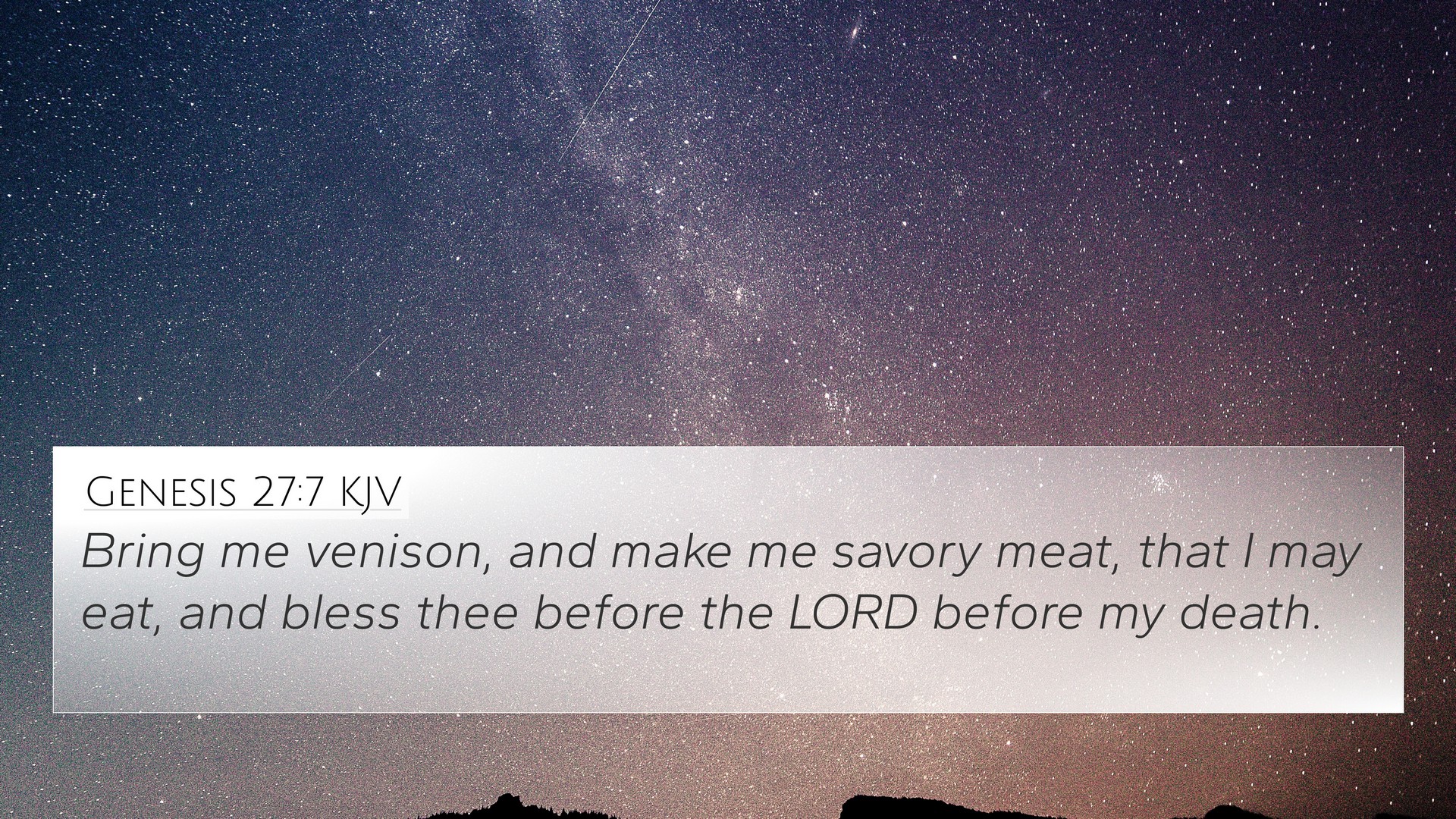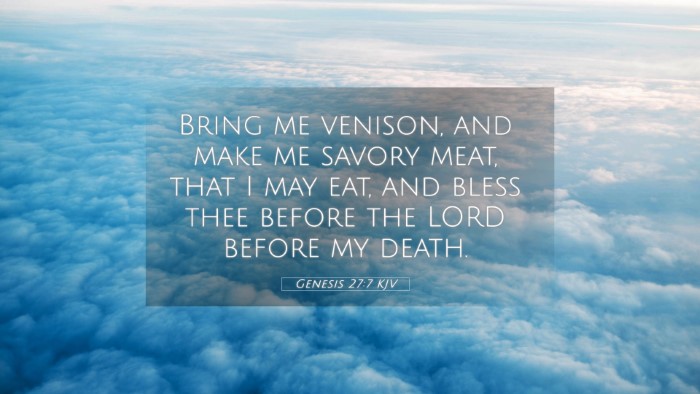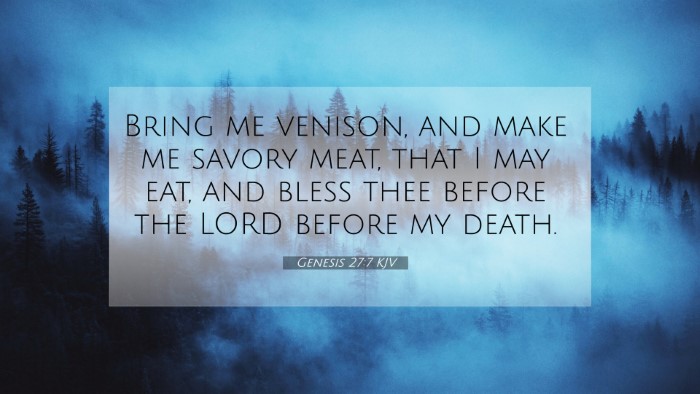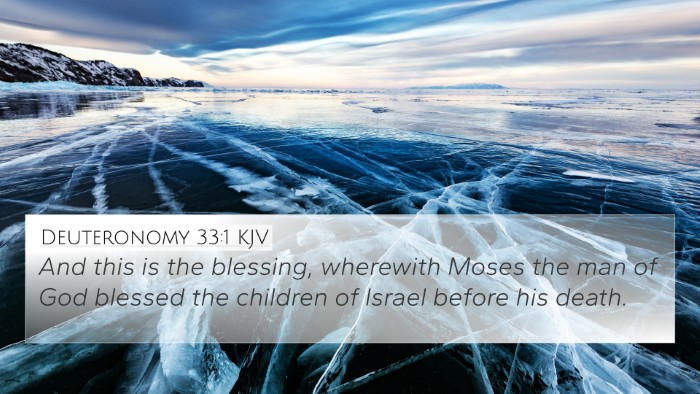Understanding Genesis 27:7
Genesis 27:7 is a significant verse that occurs in the context of Isaac's intention to bless his elder son, Esau. The verse reads:
"Bring me venison, and make me savory meat, that I may eat, and bless thee before the LORD before my death."
Overview of the Verse
In this verse, Isaac is instructing Esau to hunt and prepare a meal for him, believing that this meal would assert his blessing upon Esau, which is central to the narrative of Isaac's blessing. This moment is pivotal, as it sets the stage for the ensuing events that lead to Jacob receiving the blessing instead of Esau.
Interpretative Insights from Public Domain Commentaries
- Matthew Henry's Commentary:
Henry emphasizes that Isaac's desire for savory meat signifies his affection for Esau and highlights the familial connections within this narrative. This act of bringing food has deep-seated cultural implications, as blessings were often associated with meals and physical nourishment.
- Albert Barnes' Notes:
Barnes discusses the significance of the blessing, noting that Isaac's intention here reflects not only a paternal bond but also carries a prophetic weight that resonates throughout Israel's history. The blessing is not merely a family custom but is imbued with divine significance.
- Adam Clarke's Commentary:
Clarke points out that while Isaac sought to bless Esau, this verse encapsulates a turning point in the biblical narrative. Clarke provides an analysis of the character motivations, suggesting that Isaac's actions are influenced by his own preferences rather than the will of God, setting the stage for conflict within the family dynamic.
Contextual Analysis
This verse fits within a broader narrative (Genesis 27) that explores themes such as deception, favoritism, and the significance of parental blessing. It raises questions about divine will versus human action, as seen when Jacob deceives Isaac to receive Esau’s blessing, highlighting the flaws in the family structure.
Bible Verse Cross-References
Understanding Genesis 27:7 is enriched by several cross-references that illuminate its themes and implications:
- Genesis 25:23 - The prophecy regarding Jacob and Esau's destinies.
- Genesis 27:1-5 - The precursor events leading to Isaac's instructions to Esau.
- Genesis 28:1-4 - The formal blessing that Jacob later receives.
- Hebrews 12:16-17 - Esau's loss of the birthright and subsequent bitterness.
- Malachi 1:2-3 - God's statement about His love for Jacob and hatred for Esau, emphasizing the lasting consequences of Isaac's blessing.
- Romans 9:10-13 - Paul's reflection on God's sovereign choice, linking back to the story of Jacob and Esau.
- 1 Chronicles 5:1-2 - Reference to the birthright being transferred from Reuben to Joseph, showing the implications of blessing.
Thematic Connections and Broader Implications
The themes of Genesis 27:7 resonate throughout the Bible, linking to various concepts such as:
- The nature of divine blessings - Explored through the stories of other biblical figures who receive blessings under varying circumstances.
- The role of deception in biblical narratives - Instances where individuals achieve ends through deceit yet experience divine providence.
- Parent-child relationships - The dynamics of favoritism seen in various family structures across the scriptures, which lead to strife and division.
Conclusion
Genesis 27:7 serves not only as a pivotal moment in the life of Isaac's family but also as a launching point for discussions about divine purpose, human frailty, and the transformative power of blessings. It invites believers to consider how the actions in biblical narratives relate to their own lives.
By understanding this verse through the lens of cross-referencing and thematic exploration, readers can appreciate the interconnectedness of scripture and God's overarching narrative in the Bible.





